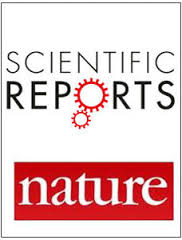“Western diet” containing high concentrations of sugar and fat consumed during pregnancy contributes to development of obesity and diabetes type 2 in offspring. To mimic effects of this diet in animals, a cafeteria (CAF) diet is used. We hypothesized that CAF diet given to rats before, and during pregnancy and lactation differently influences fat content, metabolic and inflammation profiles in offspring. Females were exposed to CAF or control diets before pregnancy, during pregnancy and lactation. At postnatal day 25 (PND 25), body composition, fat contents were measured, and blood was collected for assessment of metabolic and inflammation profiles. We have found that CAF diet lead to sex-specific alterations in offspring. At PND25, CAF offspring had: (1) higher percentage of fat content, and were lighter; (2) sex-specific differences in levels of glucose; (3) higher levels of interleukin 6 (IL-6), interleukin-10 (IL-10) and tumor necrosis factor (TNF-α); (4) sex-specific differences in concentration of IL-6 and TNF-α, with an increase in CAF females; (5) higher level of IL-10 in both sexes, with a more pronounced increase in females. We concluded that maternal CAF diet affects fat content, metabolic profiles, and inflammation parameters in offspring. Above effects are sex-specific, with female offspring being more susceptible to the diet.
